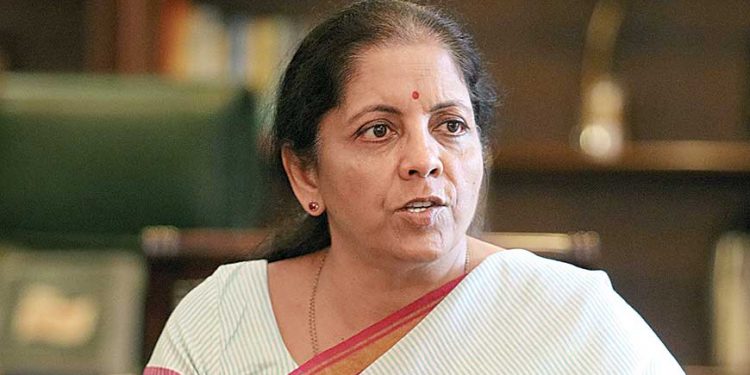New Delhi: The Modi government never allowed retail inflation to “raise its dirty head” to cause inconvenience to the common man and has kept complete control over price rise since 2014, Finance Minister Nirmala Sitharaman said Friday.
Replying to a general discussion on Union Budget 2019-20 in the Rajya Sabha, she said inflation is an important indicator through which the management of the economy is undertaken.
“In 2014-15, one of the reasons which also formed a very important part of the campaign of 2013-14 election to the Lok Sabha was food inflation which was beyond the reach of ordinary citizens.
“It was at 6.4 per cent level, making food grains very expensive, food products very expensive,” the minister said.
The BJP-led NDA came to power with full majority in May 2014 and was re-elected for another term this year with a bigger mandate.
When Prime Minister Narendra Modi had just formed the government, the headline inflation was at 5.9 per cent, she said, adding between 2014-15 up to April 2019, that inflation based on Consumer Price Index (CPI) has come down to 3 per cent. “We have ensured that all through and nowhere is there a dip and rise,” the minister said.
She said in 2014-15, the inflation was 5.9 per cent; in 2015-16, 4.9 per cent; in 2016-17, 4.5 per cent; in 2017-18, 3.6 per cent; and in 2018-19, 3.4 per cent and now in May 2019, it has come down to 3 per cent. “Inflation has never been allowed to raise its dirty head to cause inconvenience to the consumers… Complete control over inflation is the achievement of this government between the last term and…after coming now. So, inflation is a very, very powerful tool to gauge people and to know what their level of satisfaction is,” she added.
Meanwhile, as per the CPI data released by the Central Statistics Office Friday, retail inflation in June 2019 inched up to 3.18 per cent, from 3.05 per cent in May, though remaining well below the comfort level of the Reserve Bank of India (RBI).
The RBI has been mandated by the government to ensure retail inflation remains around 4 per cent. The central bank uses several instruments, including benchmark short-term lending rate (repo) to keep inflation under check.






































